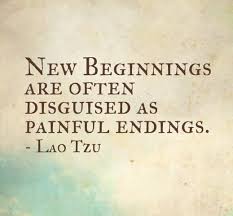“The cause of any and all stress in my life has largely been due to the belief that I was somehow responsible for other people or things outside of my control.”
Let’s face it: this world can be scary, unpredictable, and changes ALL THE TIME. This is why we have learned that “The only constant IS CHANGE”. So, living in a world of constant change and unending variables leads us to wanting to create a protected and predictable place to live. We find ourselves wanting to gain control of our situations and thereby make our environment safe. While this is a natural tendency, control can (and does) work against us. It affects our business, our relationships, but most importantly our stress level.
When we attempt to control (things, situations, or people), we begin to take ownership for the results. With ownership comes responsibility in which we turn into personal responsibility. By assuming personal responsibility, we take on the role of ownership; and if you own it, you must have to fix it. Our culture and society is one based on having a high level of personal responsibility for the things in our lives and we assume it is our duty to manage every aspect of our lives perfectly at all times. The result: massive stress.
Control -> Ownership -> Personal Responsibility -> The Need to Fix = STRESS
The Stress Relief that I am here to offer you is this concept:
“If you don’t OWN it, you don’t have to FIX it.”
The reality is that many things are outside of our control. For this reason, the only real responsibility we have is our reaction to what is happening around us. I discuss this quite frequently with my clients in the “Behavior” part of my program. If we have been conditioned to ‘Find Fault and Fix’ our whole lives, guess what? We are bound for unhappiness! We will never be satisfied with how things are, how people are, or where we are in our lives.
Many of us are so conditioned to ‘Find Fault and Fix’ other people because it gives us the excuse of not focusing on ourselves. We can easily waste energy and time analyzing and gossiping about the lives of others when we would be better served focusing on our own.
However, you may have already concluded that we also have a tendency to play the ‘Find Fault and Fix’ role in our own lives. I believe at a moderate level, this has been engrained in our personalities to move us towards evolution. However, as a society, we have taken it to the extreme resulting in the “Nothing Is Ever Good Enough” feeling. Have you ever felt this way? Do you think that you are good enough? Right now, without changing anything, do you feel good enough? Are you deserving? Do you feel worthy of success?
Many of us are stuck on the treadmill of “After I do/ achieve/ obtain __________, then I will be worthy. But it is that feeling that is keeping you from success, from happiness, from achieving your best life now. We need to recognize this pattern and take heed! Pay attention to the fact that we are trying to fix something that isn’t broken. We are much further today then we were yesterday. Stop for a moment and give yourself credit for that. You are evolving, and you are also right where you need to be.
By realizing that most of the stress that we put upon ourselves is imagined, we begin our journey to personal freedom. I love the title of a book I recently picked up entitled, “Relax, You’re Already Perfect”.
If we can give ourselves the gift of letting go, we can learn to relax. As stress goes down, we are exceedingly more creative, productive, and enthusiastic about life. This also pertains to our success at work and in relationships. If we can give others the gift of accepting them for who they are, right now, we let them relax. People tend to be more inclined to make change and share their gifts in a relaxed environment.
The continual need to intervene in other’s lives is a form of caring, but it can also be seen as a form of control. I have had to learn this one the hard way—which is why I’m sharing this with you now.
Take a moment to reflect on your life and relationships and ask yourself the following questions:


